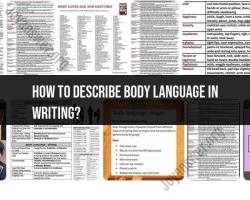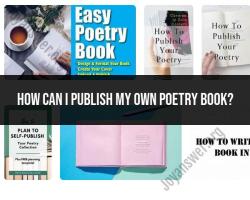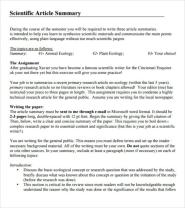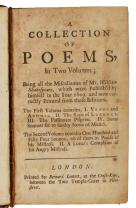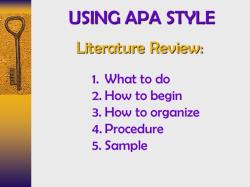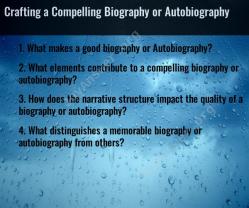What is a writing intensive seminar?
A writing-intensive seminar is a course that places a strong emphasis on developing students' writing skills and critical thinking abilities within a specific subject area or discipline. The primary objective of a writing-intensive seminar is to engage students in the process of scholarly inquiry, research, and effective written communication. These seminars are commonly found in higher education institutions and are designed to enhance students' abilities to articulate ideas, analyze information, and present well-reasoned arguments in written form.
Key features of writing-intensive seminars include:
Emphasis on Writing Skills:
- The central focus of the seminar is to cultivate and refine students' writing abilities. This includes attention to clarity, coherence, argumentation, and proper use of evidence.
Integration of Writing into Course Content:
- Writing assignments are integrated into the fabric of the course, allowing students to apply writing skills to the subject matter being studied. This integration helps students see writing as a tool for learning and communicating complex ideas.
Critical Thinking and Analysis:
- Students are encouraged to engage in critical thinking and analysis throughout the seminar. Writing assignments often require students to analyze information, draw connections between concepts, and form independent conclusions.
Frequent Writing Assignments:
- Writing-intensive seminars typically involve multiple writing assignments throughout the semester. These assignments may include essays, research papers, reflections, critiques, and other forms of written expression.
Feedback and Revision:
- There is an emphasis on providing constructive feedback on students' writing. Instructors may encourage revision and offer guidance on how to improve clarity, argumentation, and overall writing proficiency.
Small Class Sizes:
- Writing-intensive seminars are often conducted with smaller class sizes to facilitate more personalized attention and feedback on individual writing projects.
Engagement with Primary and Secondary Sources:
- Students are often required to engage with primary and secondary sources as part of their writing assignments. This helps them develop research skills and learn to integrate information from various scholarly works into their writing.
Development of Writing Process Skills:
- Writing-intensive seminars may include instruction on the writing process, including pre-writing strategies, drafting, revising, and editing. This holistic approach aims to develop students as reflective and effective writers.
Promotion of Academic Integrity:
- Writing-intensive seminars typically emphasize the importance of academic integrity and proper citation practices. Students learn to acknowledge and cite sources responsibly.
Connection to Disciplinary Conventions:
- Depending on the subject area, writing-intensive seminars often introduce students to the specific conventions and expectations of writing within a particular academic discipline.
Writing-intensive seminars can be found across various disciplines, from literature and history to the sciences and social sciences. They play a crucial role in preparing students for the demands of academic and professional writing, fostering lifelong skills that extend beyond the classroom.
Pen in Hand, Mind Engaged: Unveiling the World of Writing Intensive Seminars
Writing Intensive Seminars (WIS) are unique academic offerings that go beyond simply teaching subject matter. They delve deep into the art and craft of writing, providing an immersive environment to hone your skills and unleash your inner wordsmith. Let's explore their defining aspects, benefits, subject areas, differentiating features, and expected learning outcomes:
1. Defining the Essence of a Writing Intensive Seminar:
WIS are characterized by:
- Emphasis on writing: Writing takes center stage, constituting a significant portion of the course workload.
- Intensive practice: You'll write frequently and in diverse formats, from essays and research papers to creative pieces and presentations.
- Feedback and revision: Constructive feedback is central, fostering a cycle of improvement through multiple drafts and revisions.
- Small class size: Intimate settings allow for personalized attention, tailored feedback, and active discussions.
- Interdisciplinary approach: Writing skills learned can be applied across various disciplines.
2. Sharpening Your Skills through Immersion:
WIS offers several advantages for strengthening your writing:
- Increased confidence: Frequent writing and positive feedback boost confidence and competence in expressing yourself through writing.
- Refined techniques: You'll learn and practice essential writing skills like structuring arguments, crafting compelling sentences, and citing sources effectively.
- Genre exploration: Experimenting with different writing formats expands your repertoire and helps find your voice.
- Critical thinking and analysis: Writing demands careful analysis and synthesis of information, sharpening critical thinking skills.
- Communication mastery: Improved writing translates to more effective communication across all spheres of life.
3. A Spectrum of Disciplinary Treasures:
WIS are offered across a wide range of subjects, including:
- Humanities: Literature, history, philosophy, linguistics
- Social Sciences: Psychology, sociology, anthropology, political science
- Natural Sciences: Biology, chemistry, physics, environmental science
- Arts and Fine Arts: Music, film, theater, visual arts
- Professional studies: Business, law, journalism, education
4. Standing Out from the Crowd:
WIS differ from regular courses in several ways:
- Writing as a core competency: Writing is not just a tool; it's the central learning objective and a significant factor in grading.
- Active learning and engagement: You're not just passively consuming information; you're actively engaged in generating and refining your writing.
- Collaborative learning: Peer feedback and group discussions foster collaborative learning and critical analysis of each other's work.
- Faculty expertise: Instructors in WIS are not only subject matter experts but also skilled writing instructors who can guide your development.
- Portfolio building: The cumulative writing produced forms a strong portfolio showcasing your abilities for future applications or job searching.
5. Unlocking the Rewards of Immersion:
By completing a WIS, you can expect to achieve:
- Enhanced writing skills: You'll become a more confident, clear, and persuasive writer across various formats.
- Critical thinking and problem-solving: Your ability to analyze, synthesize, and present information effectively will be greatly improved.
- Stronger communication skills: Your written and verbal communication will be more polished and impactful.
- Personal growth and confidence: The self-reflection and feedback during the writing process can promote personal growth and confidence.
- Interdisciplinary understanding: You'll learn to apply writing skills across different disciplines, fostering a more holistic understanding.
In conclusion, Writing Intensive Seminars are not just about writing words; they're about unlocking your voice, mastering the art of communication, and empowering you to express yourself with clarity and confidence in any situation. Embrace the immersive experience, sharpen your skills, and let your writing shine!



